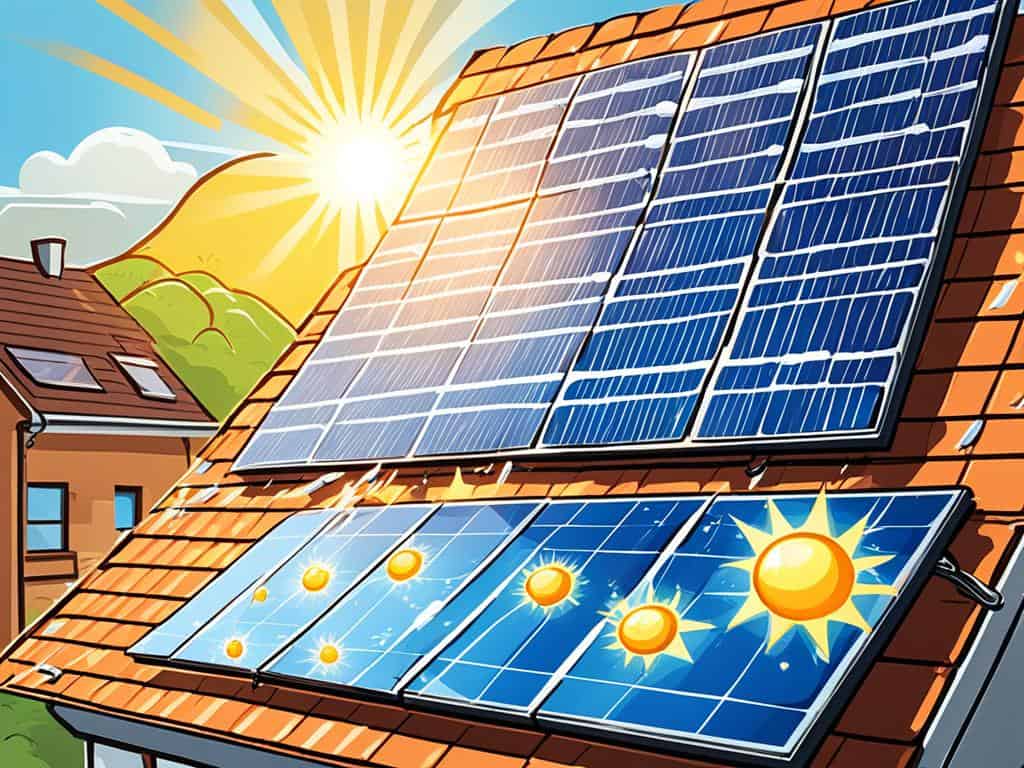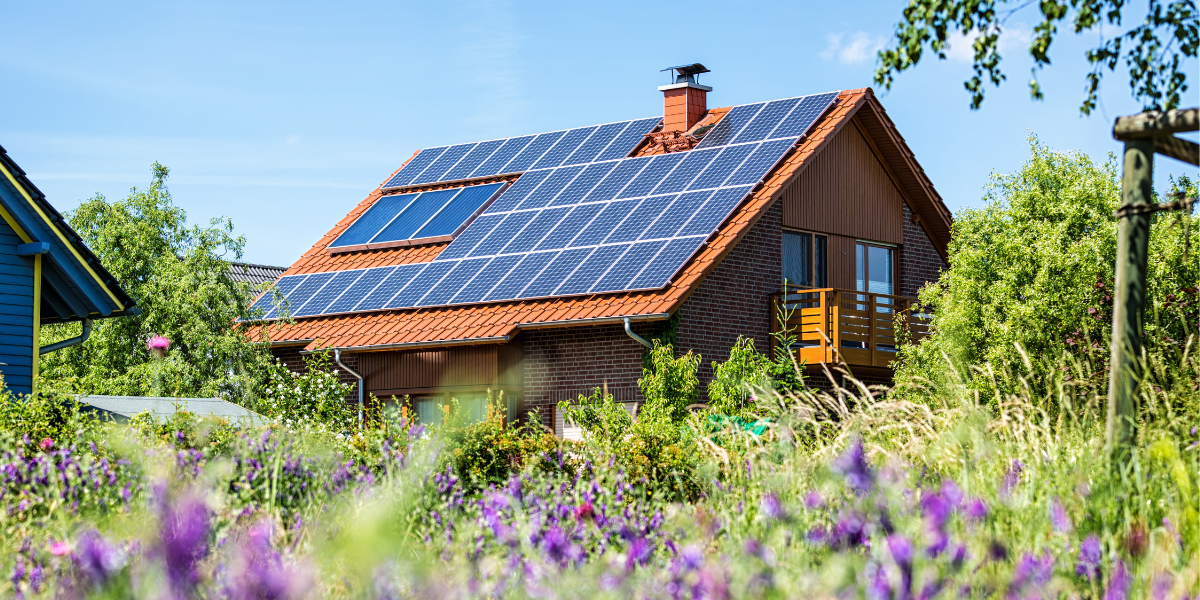Explore the latest technology in renewable energy with Solar Panels.
Explore the latest technology in renewable energy with Solar Panels.
Blog Article
Optimize Energy Savings With High-Quality Solar Panels
Taking full advantage of energy savings via the usage of top quality photovoltaic panels is a diverse approach that needs careful consideration of modern technology, installment, and maintenance. Selecting high-efficiency choices, such as monocrystalline panels, can substantially boost electricity generation, while sturdiness and guarantee terms play a crucial function in lasting financial feasibility. Furthermore, understanding the capacity for government motivations can intensify the roi. The trip does not end with the purchase; the nuances of installation and recurring upkeep are just as important to accomplishing ideal results. What factors should homeowners focus on to guarantee they recognize these advantages totally?
Advantages of Solar Power
The advantages of solar energy are various and considerable, making it a significantly attractive option for both domestic and industrial applications. Among the key benefits is its possible to reduce electrical power expenses. By taking advantage of sunshine, homeowner can generate their own power, reducing reliance on conventional utility sources and inevitably resulting in substantial financial savings.
One more crucial advantage is ecological sustainability. Solar power is a tidy, renewable energy that aids to mitigate greenhouse gas exhausts, contributing to a reduction in air pollution and environment adjustment. This lines up with international efforts to change in the direction of even more lasting power remedies.
In addition, solar power systems can raise building value. Residences and services equipped with photovoltaic panels often have greater resale worths, appealing to environmentally-conscious buyers and investors. Furthermore, federal government rewards, such as tax credit reports and refunds, can offset installment expenses, making solar energy much more economically viable.
Lastly, solar modern technology promotes power independence. By purchasing solar power, people and businesses can decrease their vulnerability to changing power rates and supply disruptions, fostering higher control over their energy resources. Jointly, these advantages emphasize the compelling reasons to take into consideration solar power solutions.
Choosing the Right Solar Panels
Selecting the best solar panels is an essential action in taking full advantage of the performance and benefits of a solar power system. When evaluating solar panels, numerous factors ought to be taken into consideration to ensure ideal efficiency and long-term savings.
First, assess the panel's efficiency ranking, which shows how efficiently it transforms sunshine into electrical power. Higher efficiency panels might have a greater in advance expense but can create more power in minimal area. Next, analyze the warranty supplied by the maker; a longer warranty typically mirrors a greater level of self-confidence in the item's sturdiness and performance.
Additionally, take into consideration the kind of solar panel technology. Monocrystalline panels are recognized for their high effectiveness and space-saving layout, while polycrystalline panels have a tendency to be extra economical however slightly much less effective. Bifacial panels, which capture sunshine from both sides, are also obtaining popularity for their potential to improve energy result.
Lastly, perform a complete review of independent efficiency ratings and consumer reviews to determine dependability and complete satisfaction. By meticulously thinking about these factors, house owners can make informed options that straighten with their energy requirements and economic goals, inevitably enhancing the return on financial investment for their solar power systems.
Comprehending Installment Costs
Comprehending the expenses linked with setting up photovoltaic panels is crucial for house owners aiming to spend in eco-friendly power. The general setup expense can differ considerably based upon several elements, including system size, panel type, installation complexity, and geographical location.
Normally, the price is calculated on a per-watt basis, with average costs varying from $2.50 to $3.50 per watt prior to any kind of motivations. A basic property system could set you back in between $15,000 and $25,000, depending on energy needs and the chosen elements.
In addition to the panels themselves, house owners must take into consideration expenditures related to inverters, mounting hardware, and electrical upgrades. redirected here Labor costs also play an essential role, as professional installation ensures compliance with safety standards and regional go to these guys policies.

Ultimately, understanding these installment expenses and potential financial advantages is necessary for property owners to make informed choices regarding transitioning to solar energy.

Upkeep for Long-Term Financial Savings
Preserving solar panels is critical for making best use of long-lasting energy financial savings and making sure the system operates at peak performance. Routine upkeep entails several essential methods that can dramatically boost the longevity and performance of solar installations.
First, routine assessments must be performed to recognize any physical damage or wear, such as cracks or loose connections. Cleaning the panels is also vital, as dust, dirt, and debris can obstruct sunlight, decreasing energy outcome (Solar Panels). It is a good idea to clean redirected here up the panels a minimum of two times a year, or a lot more regularly in locations with high degrees of dirt or air pollution
In addition, checking the system's efficiency via a surveillance software program can give real-time information on energy production and alert homeowners to any kind of abnormalities. This aggressive technique enables for timely repairs, minimizing downtime and keeping optimum energy generation.
Environmental Impact of Solar Power
The ecological effect of solar power expands much beyond its prompt advantages of decreasing electrical power costs and dependence on nonrenewable fuel sources. By harnessing sunshine, solar energy considerably decreases greenhouse gas discharges, thus mitigating environment modification. Unlike conventional power sources such as coal or all-natural gas, solar power generation does not generate air contaminants, adding to enhanced air quality and public health.
Moreover, solar power promotes biodiversity by lowering the requirement for fossil gas extraction, which often interrupts communities and environments. By transitioning to renewable resource sources, we can protect natural landscapes and secure endangered types from environment loss.
The life cycle of photovoltaic panels also provides a reduced environmental impact contrasted to conventional power resources - Solar Panels. While manufacturing photovoltaic panels involves some resource usage and exhausts, developments in modern technology and recycling processes are continuously reducing these effects. Furthermore, the lasting benefits of solar power-- such as minimized dependence on finite resources-- far surpass these first costs
Conclusion
In recap, the fostering of premium solar panels presents substantial chances for energy financial savings and environmental advantages. The calculated alignment of solar panel selections with energy demands and federal government incentives boosts return on investment, advertising sustainability and decreasing dependence on traditional power sources.
Report this page